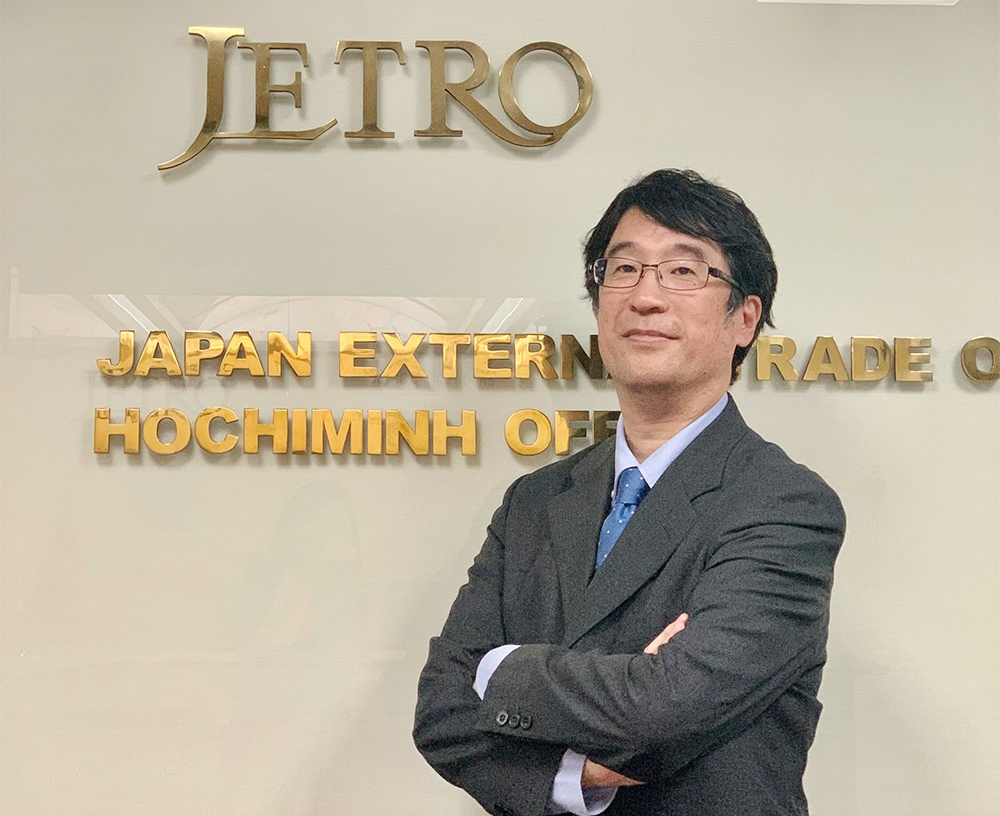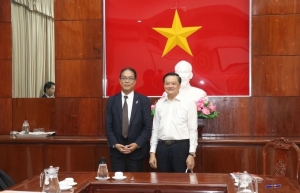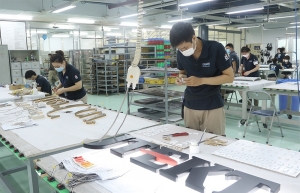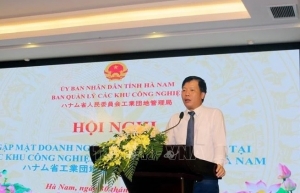Japanese players take domestic demand into account
How do you assess the trend of Japanese capital flows into Vietnam over the past time, and how has it changed compared to previous years?
Although there has been a lot of investment in Vietnam via China+1, mainly in the manufacturing industry, recently more funding has been directed towards domestic demand than manufacturing, with merger and acquisitions (M&As) of domestic companies and establishment of joint ventures. Also, within the manufacturing sector, investment has centred on the food and beverage industry becoming more prominent.
In addition, infrastructure-related investment has continued to dominate the first half of this year, and is likely to remain the main focus of domestic demand and infrastructure funding going forward.
The global economy continues to be uncertain, and the recent changes in the domestic political situation has also contributed to a lack of positive news. In the meantime, interest in Vietnam continues to be high, and we have received many inquiries about the investment environment this year, as we did last year, so we expect to see some concrete activity as soon as the outlook becomes brighter.
 |
| Matsumoto Nobuyuki, chief representative of the Japan External Trade Organization (JETRO) in Ho Chi Minh City |
Is the trend of Japanese businesses coming to the JETRO office to learn about Vietnam different from previous years?
There have been many inquiries for domestic demand this year, and companies that had previously utilised agents are now beginning to consider expanding directly into Vietnam. In particular, inquiries in the health food and beverages, baby care, and cosmetics sectors are particularly notable due to the high level of trust in the safety and high quality of Japanese products.
In order for companies like these and others to further attract investment to Vietnam in the future, the most effective way is to improve the business environment in the country, especially by simplifying and streamlining administrative procedures, which has been pointed out many times over the past few years, rather than the impact of the trade policies of the United States and other countries.
We hope that the agreement reached between Japan and Vietnam last December on a comprehensive strategic partnership will help to resolve these longstanding issues.
Since 2023, a new wave of investment through M&As has been forming, led by Japanese financiers with outstanding deals. What can you say about this trend?
Yes, a number of deals were carried out recently. Outstanding deals were Sumitomo Mitsui Banking Corporation spending $1.45 billion to buy 15 per cent of VPBank, and Sojitz acquired the entire largest food distribution company in Vietnam of Dai Tan Viet JSC. Sojitz also invested in Vinamilk, AEON Mall’s Ministop store chain, and many more.
Vietnam has a population of over 100 million and a per capita GDP of more than $4,000, which is probably why the country is becoming more attractive as a market. As mentioned earlier, funding for new and expanded projects in the manufacturing sector has been somewhat weak, and investment for domestic demand, including M&As, will probably be the main focus in the future.
What does Vietnam need to do to promote more Japanese investment in the Vietnamese market in the coming time, and what does JETRO Ho Chi Minh City do to encourage the expansion of Vietnam’s startup ecosystem?
Simplification and streamlining of administrative procedures will be most effective. These issues are not unique to Vietnam, but are common to all emerging countries. This is why they are also a factor that differentiates Vietnam from other countries. In order for Vietnam to attract more investment ahead of other countries in the future, we hope to see improvements in the area of administrative procedures.
There is increasing funding in startups for domestic demand, and Vietnam’s high economic growth has led to many funding in startups that provide solutions to emerging social issues. Many of these social issues have already been experienced in Japan, and companies with rich experience have participated in business matching with local startups that are familiar with Vietnam’s realities, and concrete cooperation and partnerships have actually begun to take place.
 | Japan to sponsor over 28 million USD for Can Tho city's smart city project The People’s Committee of Mekong Delta city of Can Tho on July 24 held a working session with Fujitsu Limited of Japan on a project on providing technical support for the locality, aiming to build a smart city model through digital transformation in land management. |
 | Japanese 7-Eleven owner soars on takeover offer Shares in the Japanese operator of 7-Eleven soared on Monday after the firm confirmed it had received a takeover bid from Canadian retail giant Alimentation Couche-Tard. |
 | Vietnam a key market for Japanese Japanese investors continue to bet on Vietnam’s market with rising strategic partnerships and greenfield investments. |
 | Japanese investors pour over 1.3 billion USD into Ha Nam The Management Board of Industrial Parks in the northern province of Ha Nam on August 30 held a meeting with Japanese enterprises that are investing in industrial parks in the province. |
 | Japanese bold on ventures in real estate Japanese investors continue to participate more deeply in merger and acquisition activities in the real estate sector in Vietnam, with a series of new initiatives and expanding portfolios. |
What the stars mean:
★ Poor ★ ★ Promising ★★★ Good ★★★★ Very good ★★★★★ Exceptional
Related Contents
Latest News
More News
- SK Innovation-led consortium wins $2.3 billion LNG project in Nghe An (February 25, 2026 | 07:56)
- THACO opens $70 million manufacturing complex in Danang (February 25, 2026 | 07:54)
- Phu Quoc International Airport expansion approved to meet rising demand (February 24, 2026 | 10:00)
- Bac Giang International Logistics Centre faces land clearance barrier (February 24, 2026 | 08:00)
- Bright prospects abound in European investment (February 19, 2026 | 20:27)
- Internal strengths attest to commitment to progress (February 19, 2026 | 20:13)
- Vietnam, New Zealand seek level-up in ties (February 19, 2026 | 18:06)
- Untapped potential in relations with Indonesia (February 19, 2026 | 17:56)
- German strengths match Vietnamese aspirations (February 19, 2026 | 17:40)
- Kim Long Motor and AOJ Suzhou enter strategic partnership (February 16, 2026 | 13:27)

 Tag:
Tag:



















 Mobile Version
Mobile Version